
10 Best Finger Foods for Parkinson’s
What types of foods are recommended for individuals with Parkinson’s? What are the best finger foods for parkinson’s? Parkinson’s disease is a common condition, particularly affecting those over 60. While symptoms vary from person to person, they often include tremors and muscle stiffness. Medications are typically prescribed to manage these symptoms. Unfortunately, there’s no cure for Parkinson’s, and treatments focus on controlling the symptoms. Given the potential side effects of medications, many people turn to diet as a complementary approach.
While diet cannot cure Parkinson’s, it can help alleviate symptoms. In this article from humanhealthmag, we will explore the best finger food recipes and ideas for individuals with Parkinson’s disease.
How Does Diet Affect Parkinson’s Disease?
A diet rich in specific nutrients can significantly improve the quality of life for individuals with Parkinson’s disease. Since Parkinson’s is linked to a dopamine deficiency, nutritionists often recommend foods that naturally boost dopamine levels. Additionally, dietary changes can help mitigate other symptoms such as cognitive decline and constipation. Foods high in antioxidants can reduce oxidative stress in the brain, while fiber and probiotics can alleviate constipation.
Magnesium, an essential mineral, can help alleviate muscle cramps commonly experienced by Parkinson’s patients. By following a tailored diet and incorporating regular exercise, individuals with Parkinson’s can effectively manage their symptoms and enhance their overall well-being.
Research suggests that a diet rich in antioxidants can play a protective role in the brain and slow the progression of Parkinson’s disease. In Parkinson’s, an imbalance occurs between antioxidants and harmful free radicals. Consuming foods high in antioxidants, such as nuts (like walnuts and pistachios), berries (like blueberries and blackberries), and vegetables (including tomatoes, peppers, eggplant, spinach, and kale), can help counteract this imbalance and potentially reduce the symptoms of Parkinson’s disease.
Finger Foods for Parkinson’s
what is finger food? Finger foods are bite-sized delights designed to be eaten with your hands, eliminating the need for utensils. These tasty treats come in a variety of shapes and flavors, often featuring skewers with colorful vegetables and proteins, mini sandwiches, or open-faced canapés. Whether you’re serving mini burgers, fruit skewers, or cheese and cracker platters, finger foods are a practical and enjoyable way to satisfy appetites. In the following, we will get to know how to cook different types of finger foods for the elderly that have parkinson.
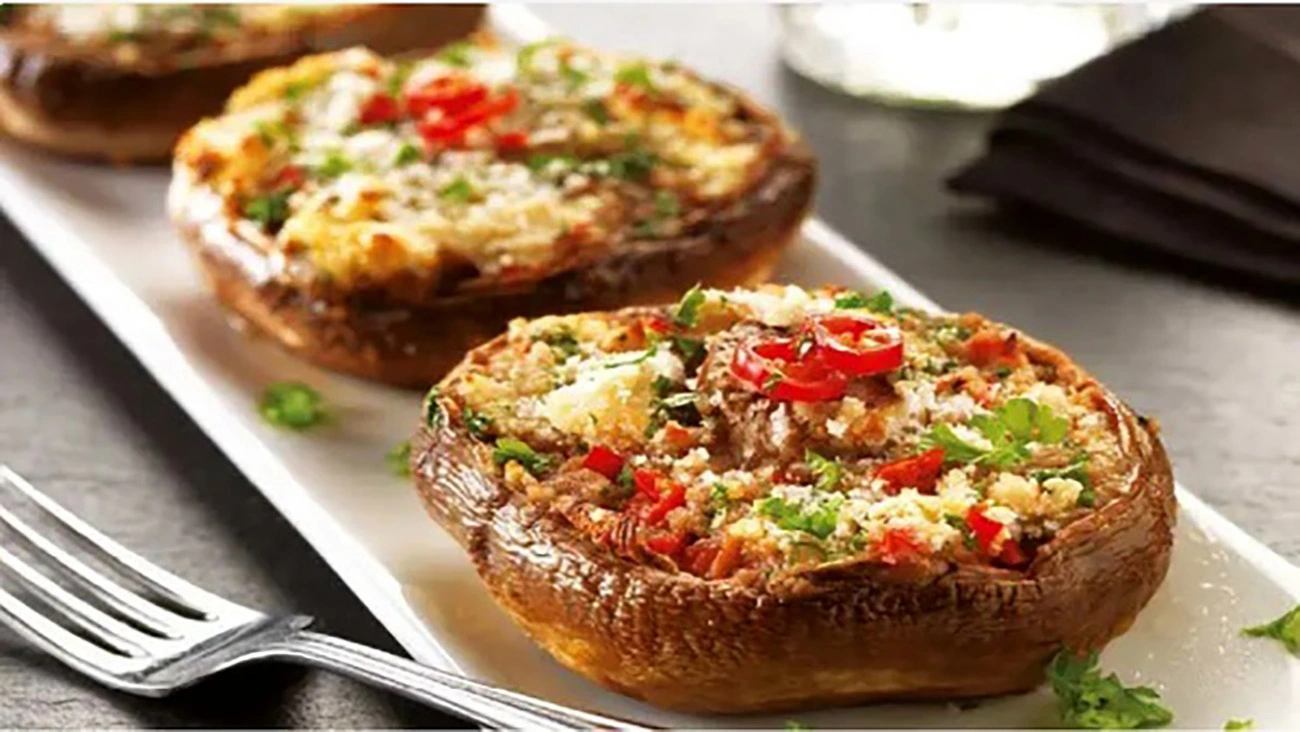
1- Stuffed mushrooms
For a delicious and easy appetizer, try stuffed mushrooms. Select medium to large mushrooms and carefully hollow them out. Fill the mushrooms with your favorite pasta sauce, making sure it’s slightly thickened. Place the stuffed mushrooms in a baking dish and top each with a slice of mozzarella cheese. Bake for 10 minutes, or until the cheese is melted and bubbly. For a colorful presentation, garnish with cherry tomatoes or bell peppers.

2- Chicken and vegetable canapés
To create delicious chicken and vegetable canapés, start by combining finely shredded cooked chicken with fresh lemon juice, mayonnaise, Greek yogurt, chopped celery, finely chopped chives, parsley, and salt and pepper. For a smoother consistency, you can pulse the mixture in a food processor. Spread the resulting mixture onto slices of toast to create delectable canapés.

3- Chicken and potato rolls
Chicken and potato rolls are a delightful finger foods for parkinson’s that combines the flavors of tender chicken and creamy potatoes. To create these tasty treats, parboil potatoes seasoned with salt and spices before slicing them. Then, cut chicken breasts into thin strips, marinate them in a blend of spices, and wrap them around the potato slices. These rolls are then pan-fried or baked until golden brown and crispy. The result is a delicious and satisfying appetizer or main course that can be enjoyed hot or cold.
Do you want to explore ice cream social ideas for seniors that can lead to creating a sweet and different experience in serving ice cream

4- Single-serving chicken cake
To make a single-serving chicken cake, start by boiling chicken with onion, salt, and turmeric, then shred it. Combine mayonnaise and yogurt in a separate bowl. Add the shredded chicken and finely chopped parsley to the sauce mixture. Dice the green onions and incorporate them into the mixture, seasoning with additional salt to taste. Assemble the cake by layering sliced bread in a dish, followed by the chicken mixture. Repeat the layers until all the ingredients are used. Refrigerate the cake for a few hours to allow the flavors to meld. Garnish and serve.
5- Simple classic bread and cheese finger food
One of the easiest and most accessible finger foods for parkinson’s is the classic bread and cheese combination. This simple yet satisfying snack is perfect for casual gatherings and can be customized with various types of bread and cheese, along with an array of fresh vegetables, nuts, and olives. The versatility of bread and cheese finger foods makes them a popular choice for any occasion.
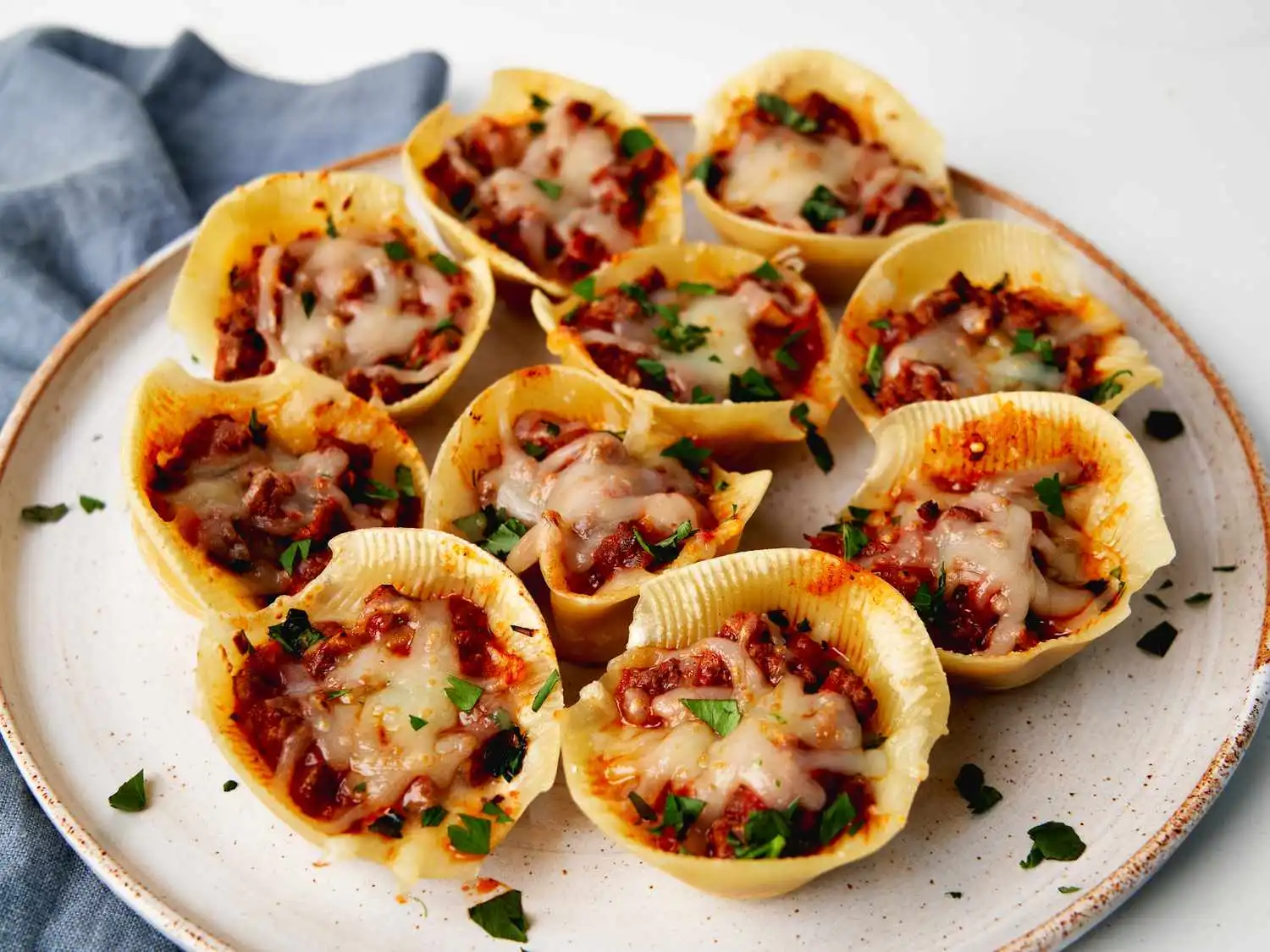
6- Lasagna cup
Lasagna cups are a popular and delicious finger foods for parkinson’s that can be easily made using muffin tins. By layering cooked lasagna noodles, ricotta cheese, and a meat sauce in individual cups, you can create bite-sized portions of this classic Italian dish. To prepare lasagna cups, simply grease a muffin tin, line each cup with a piece of lasagna noodle, and layer with ricotta cheese, meat sauce, and shredded mozzarella. Bake in a preheated oven until the cheese is bubbly and golden brown. These mini lasagna cups are perfect for parties, potlucks, or as a fun and easy weeknight meal.
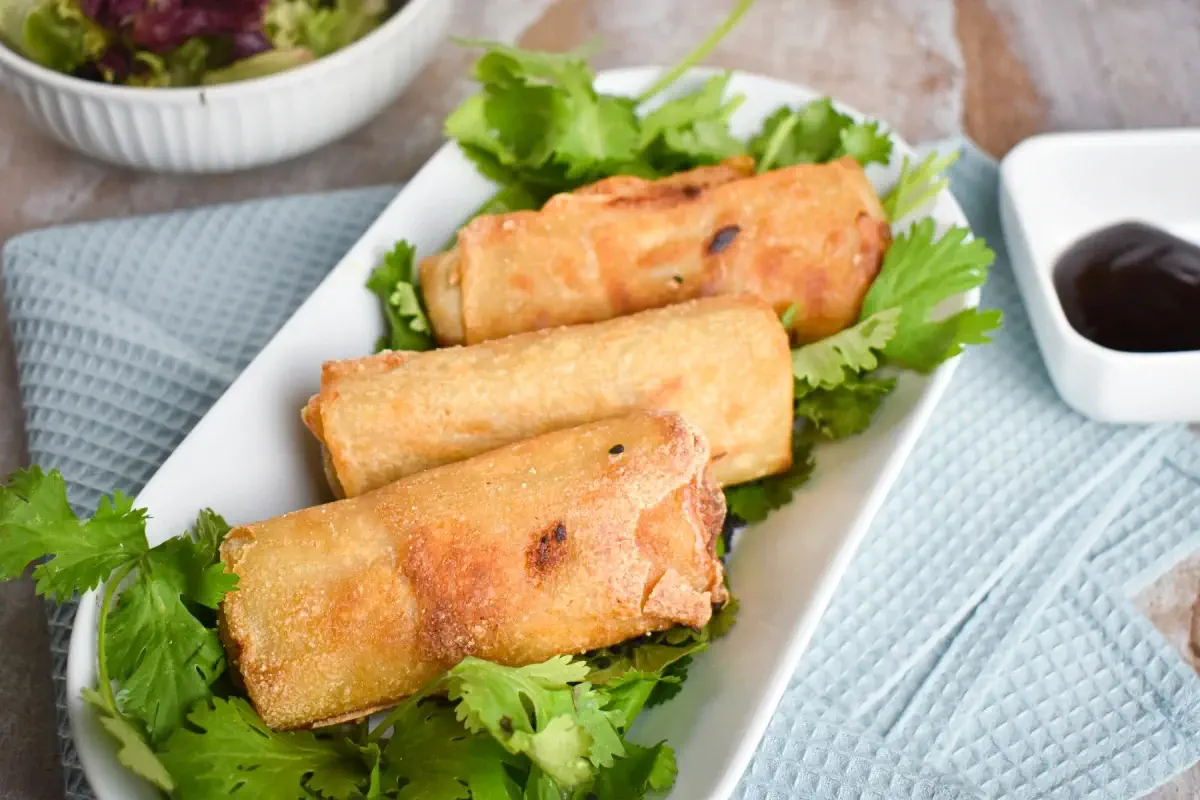
7- Homemade Vegetable Egg Rolls
To make this delicious and nutritious finger food, finely chop carrots and green onions. Beat the eggs in a bowl and mix all the ingredients together. Pour the mixture into a preheated pan. After the eggs are cooked, roll it up and slice it. This simple recipe creates a tasty and visually appealing appetizer or snack.
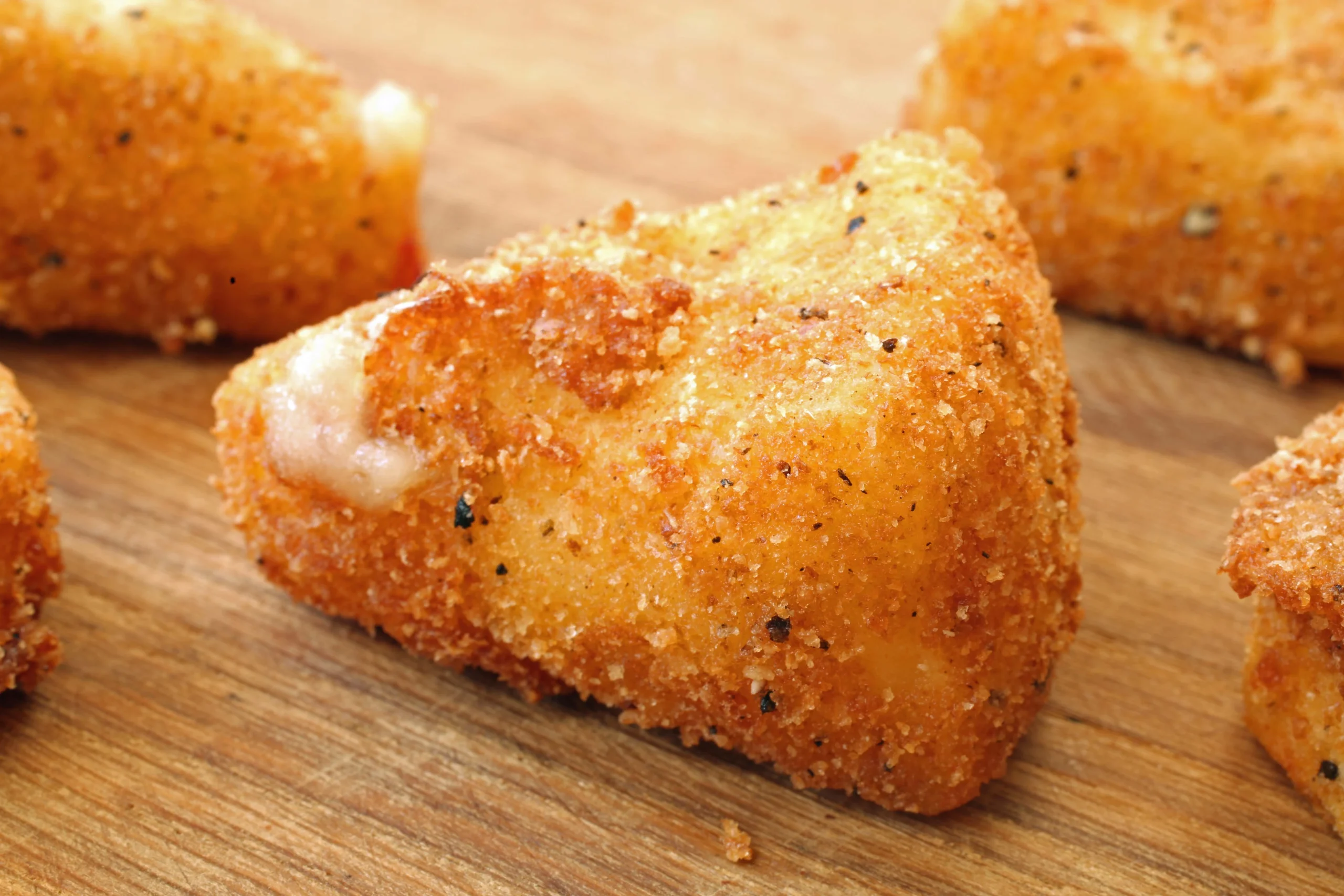
8- Fried cheese
Fried cheese is a quick meal prep for seniors and delicious appetizer or snack for parkinson’s made with mozzarella cheese, breadcrumbs, an egg, and cooking oil. To make it, you simply cut the cheese into small pieces, coat them in beaten egg, then roll them in breadcrumbs. The coated cheese is then fried in hot oil until the breading is crispy and golden brown. It’s a popular finger food often served with marinara sauce.
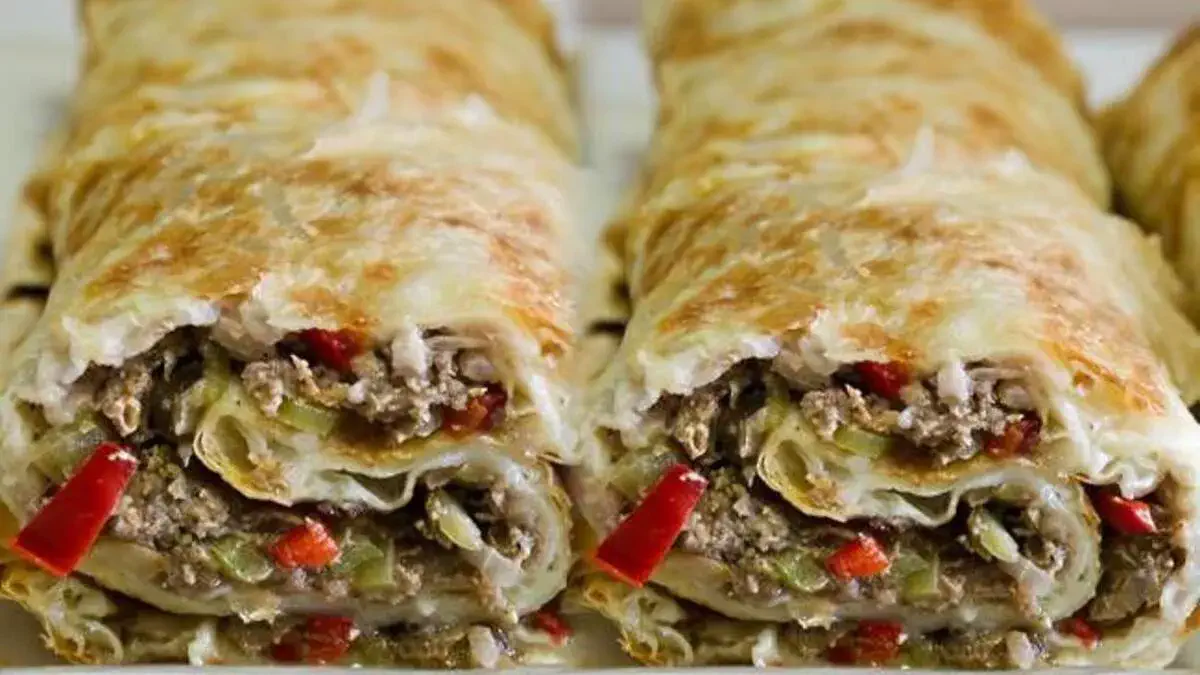
9- Meat borek
Meat borek is a delightful finger foods option for parkinson’s that features a savory filling wrapped in delicate pastry. To make it, sauté ground meat with onions, bell peppers, and mushrooms. Once cooked, stir in tomato paste and your favorite seasonings. After cooling, wrap the mixture in thin sheets of filo pastry and fry until golden brown. This tasty and versatile appetizer is perfect for parties and gatherings.
Borek and Samosa are similar finger foods that can be elevated with the addition of various herbs and spices. Parsley, in particular, is a versatile herb that can significantly enhance the flavor of these savory pastries. Whether fresh or dried, parsley can be incorporated into the filling of borek or Samosa, and it also makes a delightful garnish when sprinkled on top. The fresh, herbaceous flavor of parsley complements the rich and savory flavors of these dishes, creating a truly delicious and aromatic treat.

10- Mini burgers
Mini burgers are a delightful and convenient finger food perfect for satisfying your fast-food cravings. To make them, combine ground beef and lamb, along with onions, salt, pepper, turmeric, and saffron. Shape the mixture into small patties and pan-fry until cooked through. Assemble the mini burgers on small buns with a slice of tomato, a patty, and a slice of Gouda cheese. Garnish with cherry tomatoes on toothpicks for a festive touch. These tasty treats are great as a snack or a main course.
Concluding Remarks
Parkinson’s disease, a significant neurological disorder, requires medical attention if you experience two or more of its serious symptoms. While a specialized diet can help manage symptoms, it’s crucial to consult with a healthcare professional. Alongside a balanced diet and regular exercise, symptoms can be mitigated. Given their convenience and visual appeal, finger foods for parkinson’s have become a popular choice for parties and gatherings. By incorporating a variety of healthy ingredients and creative presentations, you can create delicious and nutritious finger food options that cater to different dietary needs and preferences.

Finger Foods for Parkinson’s Frequently Asked Questions
What foods make Parkinson’s worse?
It’s advisable for individuals with Parkinson’s disease to avoid foods high in saturated fats. These include beef, butter, cheese, palm oil, fried foods, and fast food. Given the challenges Parkinson’s patients often face with chewing and swallowing, it’s best to steer clear of foods that are difficult to chew.
Are canned foods bad for Parkinson’s patients?
It’s recommended that individuals with Parkinson’s disease avoid consuming processed foods such as canned goods, soda, sausages, deli meats, and artificially sweetened beverages. These foods often contain additives, preservatives, and high levels of sodium, which can contribute to inflammation and other health problems.
